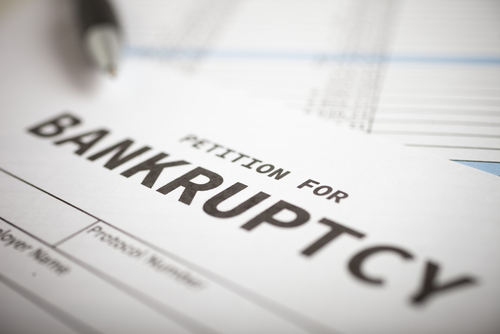
Before we get to the myths, there are two types of consumer bankruptcy:
(1) Chapter 7; and (2) Chapter 13.
Chapter 7 bankruptcy, also known as liquidation bankruptcy, is a type of bankruptcy that can eliminate many types of unsecured debts without repayment of the debt.
Chapter 13 bankruptcy, on the other hand, enables individuals with regular income to develop a plan to repay all or part of their debts. Under this Chapter, debtors enter into a repayment plan to make installments to creditors over 3 to 5 years.
MYTH #1 – Back Taxes Owed to the IRS are not dischargeable in bankruptcy.
In fact, back taxes owed to the IRS are dischargeable if (1) the taxes were timely filed and (2) the back taxes owed are now at least three years old. If your back taxes meet this criterion and you file for Chapter 7 bankruptcy protection to have this debt discharged, the qualifying back taxes will be discharged and you will be relieved of your obligation to pay the qualifying back taxes.
MYTH #2 – Filing Bankruptcy will not stop the IRS from taking collection action against you for taxes owed that do not meet the above criterion.
If you file for Chapter 13 bankruptcy protection and include your back taxes in the Chapter 13 repayment plan, the IRS is prohibited from taking any collection action on the tax debt that has been included in the approved Chapter 13 repayment plan, while the Chapter 13 is in effect. Chapter 13 repayment plans are typically 3 to 5 years.
MYTH #3 – Married couples have to file bankruptcy jointly in order to discharge joint IRS tax debt.
Not necessarily. If one spouse files for Chapter 13 bankruptcy protection and includes the qualifying back taxes in the Chapter 13 repayment plan, the other spouse is not required to file bankruptcy for the same IRS debt that was included in the approved Chapter 13 repayment plan. However, if one spouse filed for Chapter 7 bankruptcy protection and included the qualifying tax debt in the Chapter 7 filing, after the debt has been discharged for that spouse under a Chapter 7, the IRS could in fact take collection action against the other spouse to satisfy that debt. The key here, is that the filing spouse must file for Chapter 13 bankruptcy protection and not Chapter 7. A Chapter 13 will protect both spouses under this scenario. A Chapter 7 will not.
MYTH #4 – Filing bankruptcy has no impact on your obligation to make your monthly student loan payment.
When a person files for bankruptcy protection, the automatic stay immediately takes effect. The automatic stay is an automatic injunction that halts actions by creditors, with certain exceptions, to collect debts from a debtor who has declared bankruptcy. Under section 362 of the United States Bankruptcy Code, the stay begins the moment the bankruptcy petition is filed.
If a Chapter 13 is filed, you will not be required to make any student loan payments while you are under your Chapter 13 repayment plan. The length of a Chapter 13 repayment plan is 3 to 5 years.
MYTH #5 – You cannot keep your house if you file for Chapter 7 bankruptcy protection.
Maybe. It depends on whether or not your house has any equity, and if so, how much. Generally, under a Chapter 7, the bankruptcy trustee would seek to liquidate your assets to pay off unsecured creditors. However, if your house does not have any equity, you may be able to keep your house. Filing for Chapter 7 bankruptcy protection does not automatically mean that you have to relinquish your assets.
Written by:
Kobi O. Smith, Esquire
Of Counsel, Hearns Law Group, LLC
